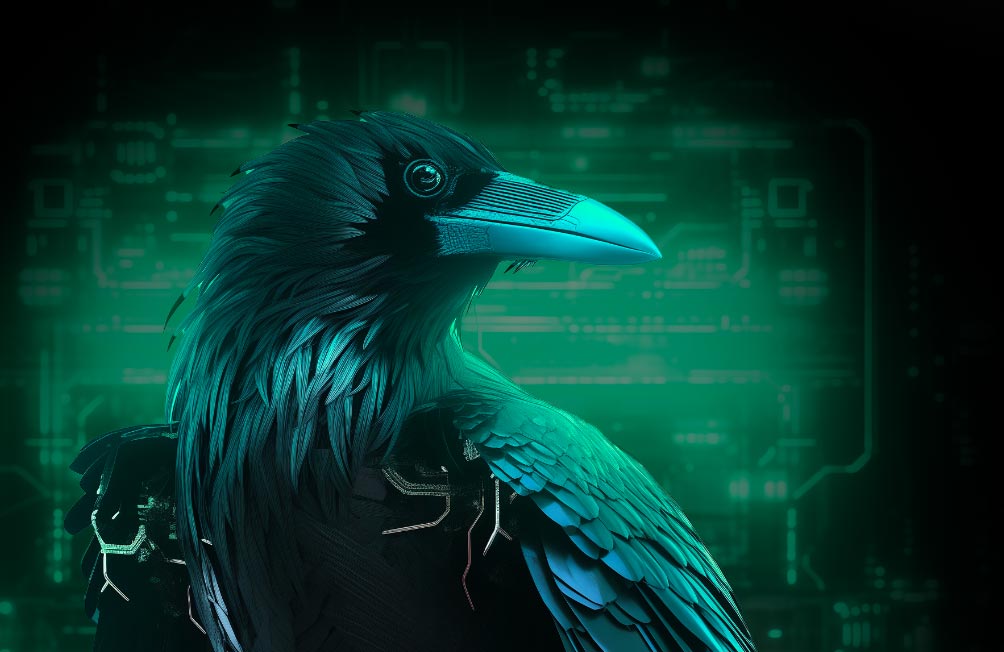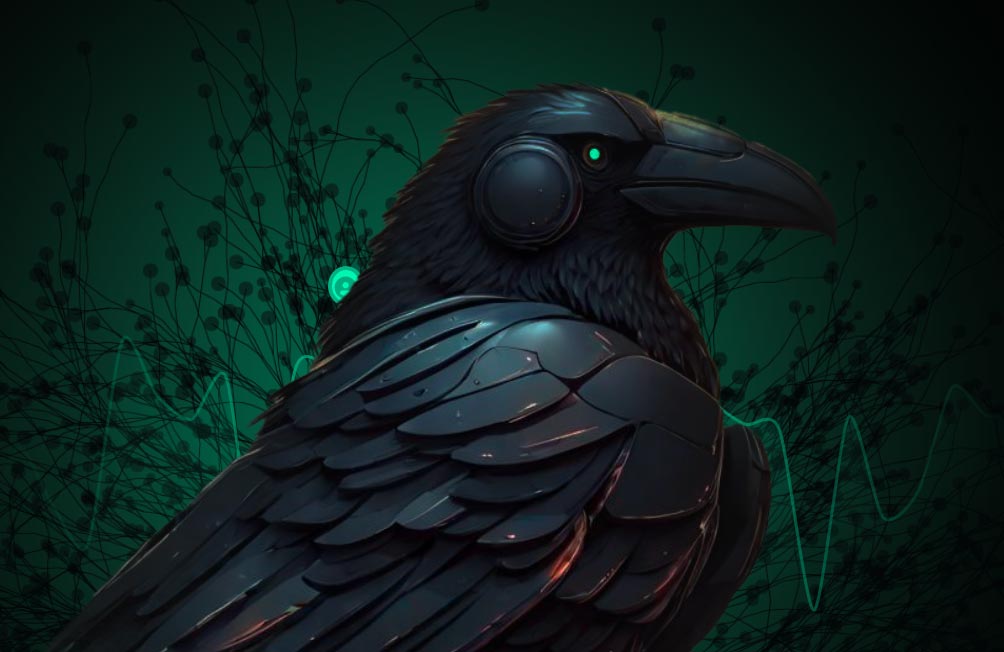Empowering Gen Z: How Compass by Blackbird.AI Uses AI to Battle Narrative Attacks
Narrative attacks are seemingly everywhere on social media and apps. Here’s how Compass by Blackbird.AI helps young professionals use AI to help users determine the reliability of the information they consume.
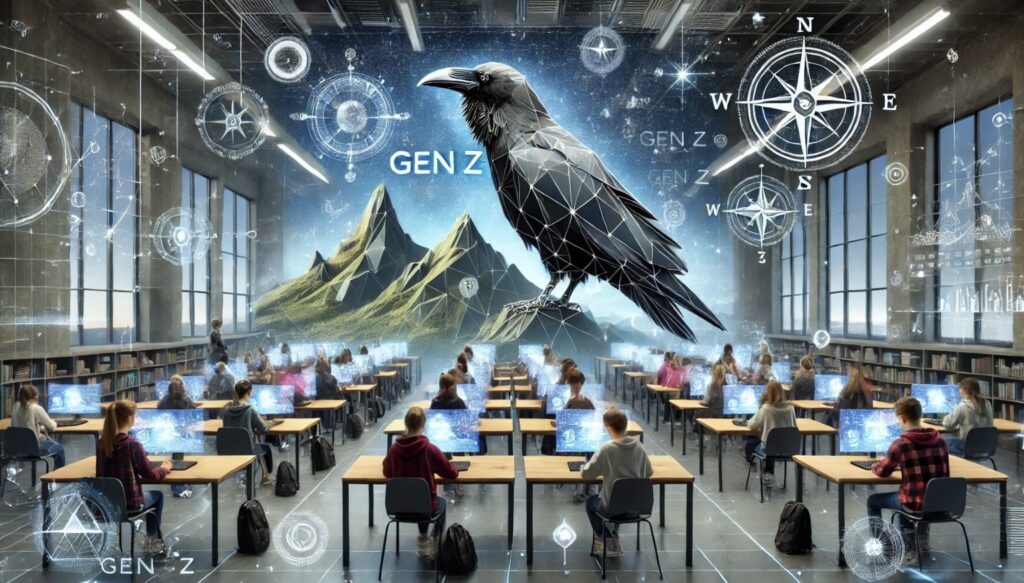
Image: Dall-E 3
This summer, I’m working as an intern at Blackbird.AI. Like many of my Gen Z friends, I rely on social media for most aspects of life. According to my iPhone’s screen time feature, I spend around 6 hours consuming social media content daily. I use it for TV and music recommendations, travel destinations, restaurants and attractions, and news and life-hack outlets. My peers are similar, using social media for everything from staying informed to watching and sharing entertaining videos.
My friends and I understand the social web can be a wasteland of narrative attacks. Bullshit content shows up on our feeds and in the news every day, but there aren’t a lot of great ways to cut through the noise to help determine the reliability of the information we consume.
LEARN MORE: What Is A Narrative Attack?
As part of my internship, I have been investigating how Blackbird.AI uses AI to protect organizations from narrative attacks. One of the key products I have been using to publish research is Compass by Blackbird.AI. It’s an advanced “Context Checking” platform that uses AI to combat the problem of narrative attacks. When users view questionable claims or news, Compass by Blackbird.AI can analyze the content using advanced machine learning algorithms and a comprehensive database of verified information. It can identify signs of manipulation, bias, or falsehoods and provide detailed context and background to help users determine the reliability of the information they consume. This dependability is crucial because the rapid spread of narrative attacks can significantly impact public opinion, decision-making, and societal discourse.
Compass by Blackbird.AI‘s user-friendly interface and real-time analysis make it particularly appealing to the tech-savvy Gen Z demographic. As they navigate through an overwhelming amount of information daily, the platform’s ability to quickly verify the information and provide contextual insights helps foster more informed and critical thinking. Additionally, its educational component explains why certain information is flagged as questionable, empowering users to develop better digital literacy skills. Compass by Blackbird.AI plays a pivotal role in promoting a healthier information ecosystem, combating the spread of narrative attacks, and enabling more informed decision-making in the digital age by providing Gen Z with tools to evaluate information critically.
As an example, here are questions or claims that Gen Zers may have concerning future job opportunities, personal reputation, and college stereotypes, which have been contextually analyzed using Compass Blackbird.AI:
Question 1) How will industries change in the future, and what does that mean for college graduates?
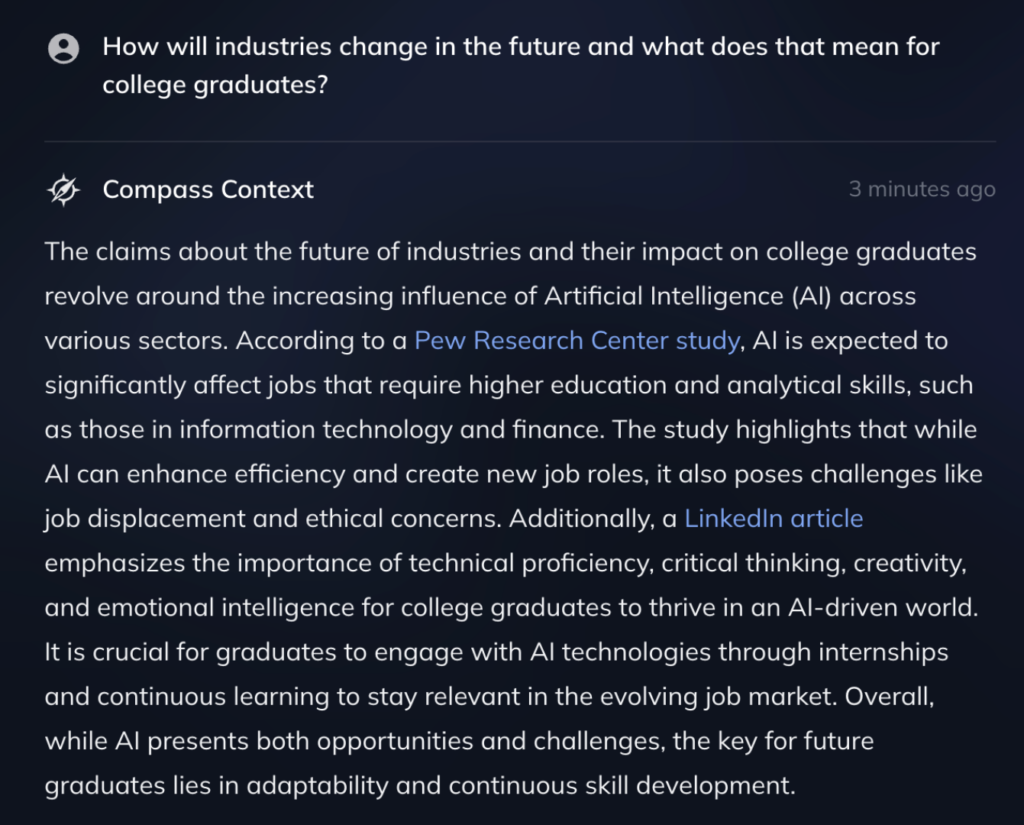
My take: Artificial Intelligence (AI) will significantly impact jobs because of its potential to streamline repetitive tasks, boost productivity, and encourage creativity. AI will bring many changes to various industries, so college students should acquire the skills to utilize these tools effectively, enhancing their capacity to learn and thrive.
Question 2) What are the top job opportunities for college graduates in 2027?
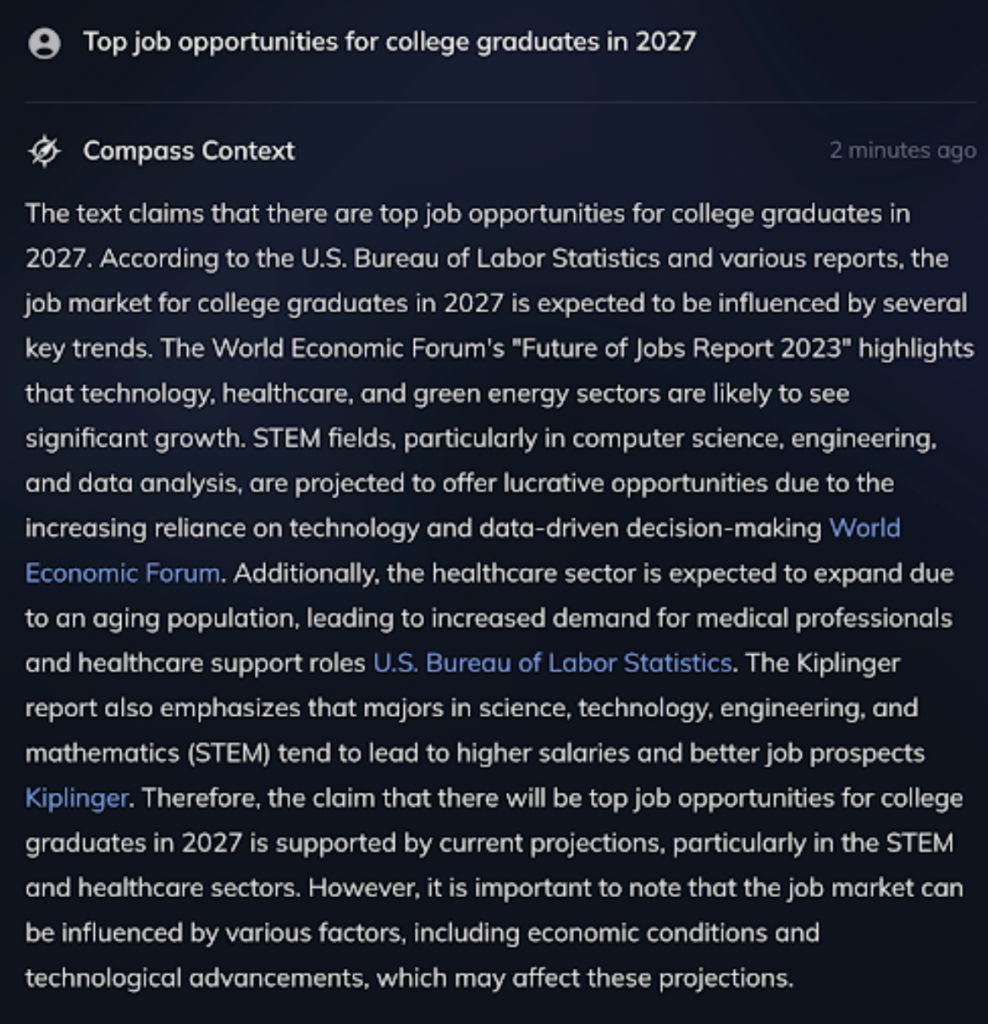
My take: The expanding technology, healthcare, and green energy sectors will influence the job market for graduates in 2027. Due to the growing dependence on technology and data, fields such as computer science, engineering, and data analysis are expected to provide lucrative opportunities. New job opportunities are emerging regularly, so staying open-minded and learning about various fields is essential to improve one’s chances of success.
Question 3) Will AI replace every job?
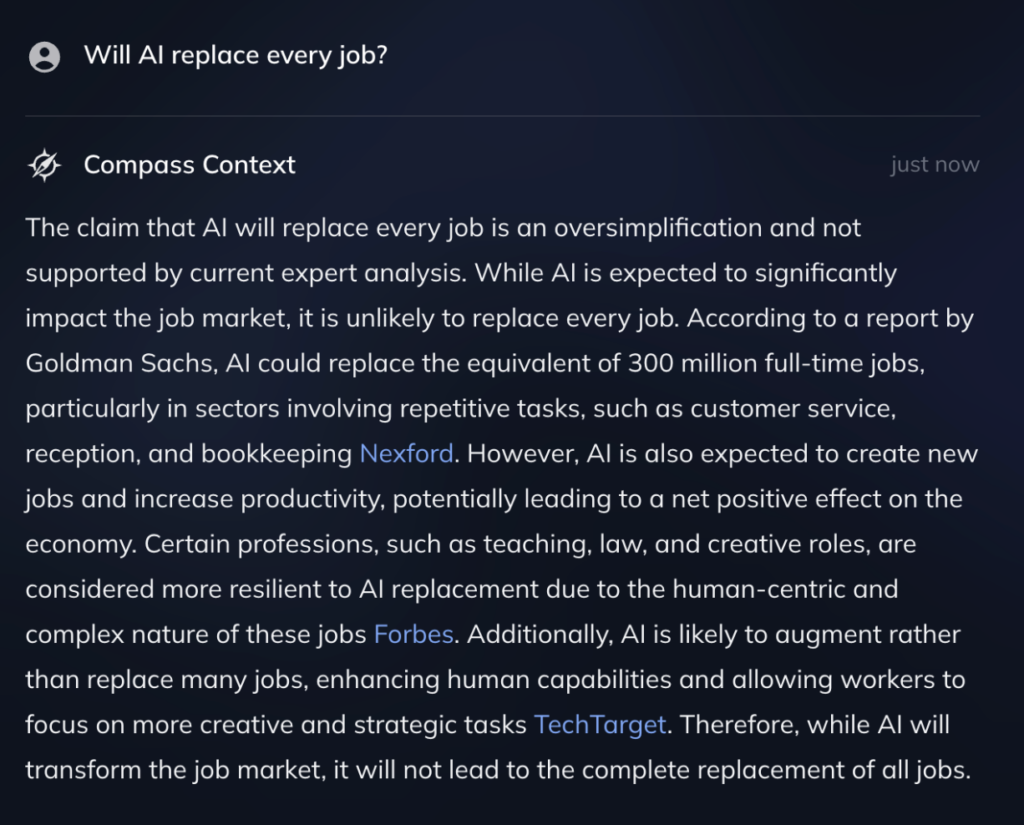
My take: The idea that AI will ultimately replace all jobs is an oversimplification that is not supported by facts. While AI is starting to automate mundane tasks, it also creates new opportunities to reduce stress, increase productivity, and enable personal growth and exploration. AI is a tool meant to amplify our unique human values that machines cannot replicate or replace in our jobs.
Question 4) How many open Cybersecurity jobs will there be in 2027?
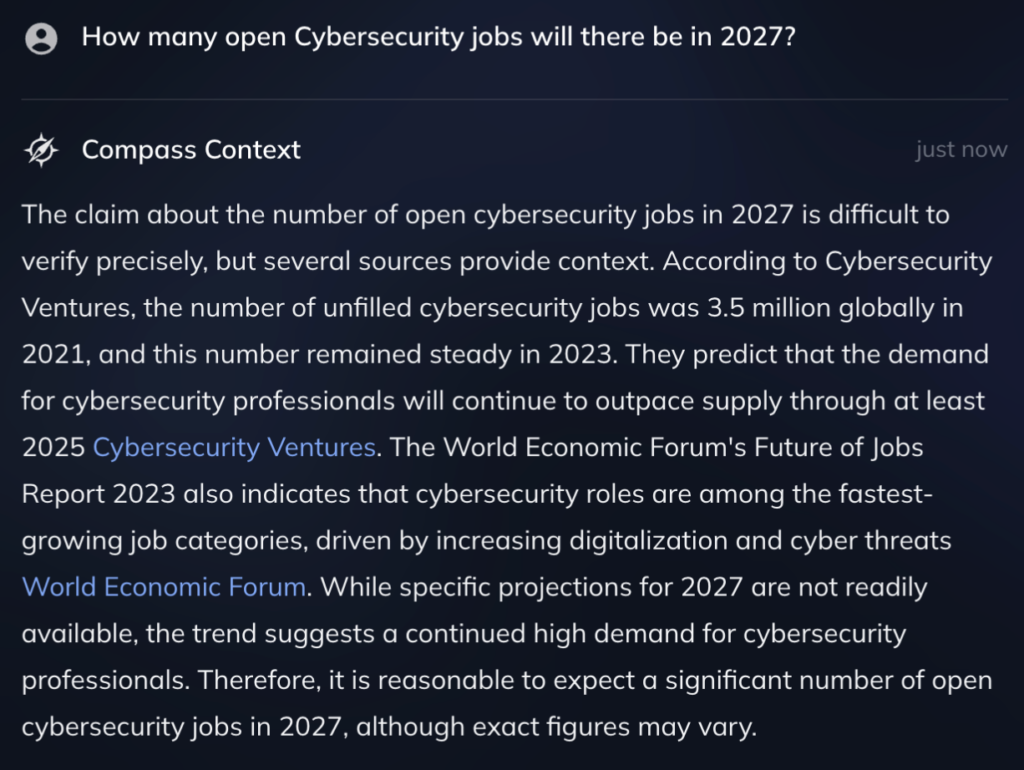
My take: Cybersecurity is becoming increasingly important in our daily lives. You hear about breaches daily in the news, and almost every password manager alerts you about at-risk passwords and their severity. It’s a growing profession gaining popularity among younger generations due to the prevalence of information about narrative attacks and hacking. As technology progresses, cybersecurity will become an even more essential profession with significant growth potential.
Question 5) Do computer science students really not shower?
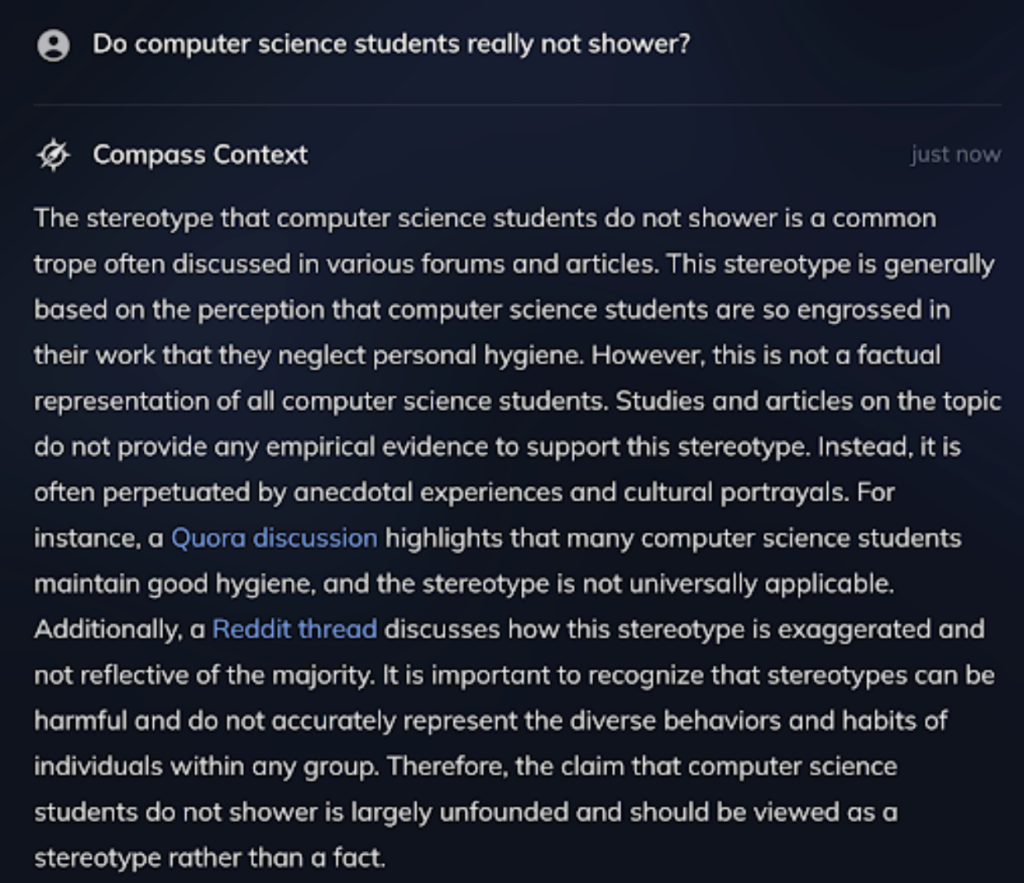
My take: The stereotype that computer science students are a common question I hear from my friends, as a computer science major myself. This claim incites two different reactions: a grimace or a laugh. Everyone has different hygiene practices, so this generalization is unfair because it fails to capture diverse behaviors and capitalizes on memes.
Question 6) How accurate are AI plagiarism checkers?
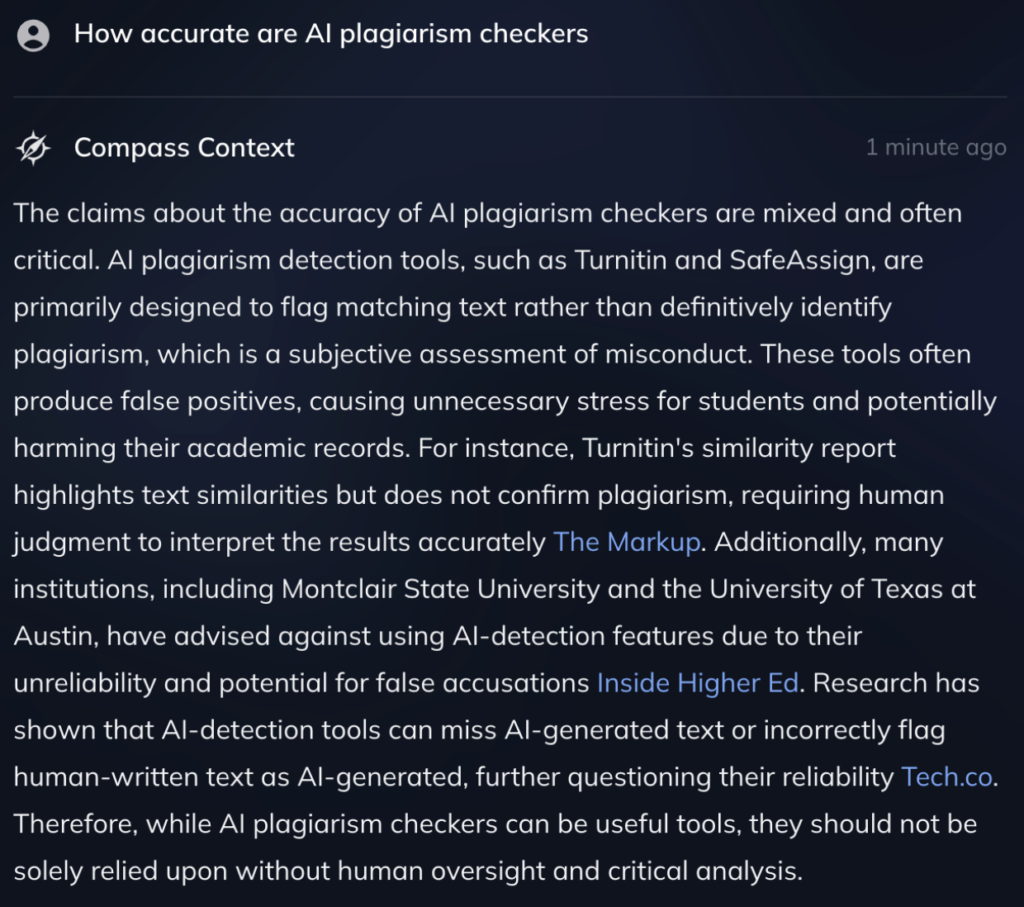
My take: There have been multiple instances where free online AI plagiarism checkers incorrectly flagged content as plagiarized. These false positives increase stress for students because it is challenging to understand why original content was flagged as plagiarized. Professors need to review the assignments carefully to ensure accuracy and fair grades.
Question 7) Do tattoos still have a negative stigma in the corporate world?
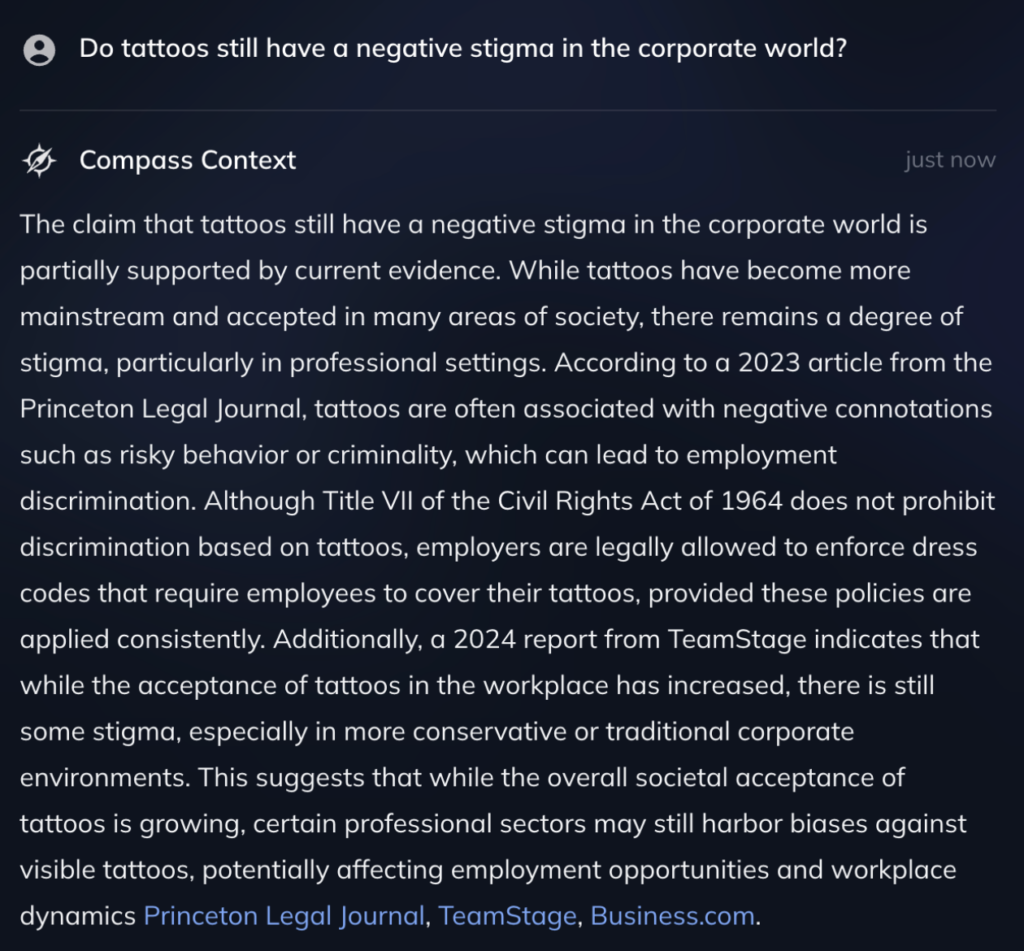
My take: While tattoos are generally accepted in many social settings, there still seems to be a stigma against them in the workplace. Tattoos often carry negative connotations that can lead to employment discrimination. In conservative corporate environments, dress codes are enforced to cover tattoos, encouraging the idea of getting tattoos in easily covered areas to avoid potential impacts on employment opportunities and workplace dynamics. In startup environments, especially cybersecurity, tattoos are much more prevalent and accepted as the norm.
Question 8) How difficult will it be to find a job after college?
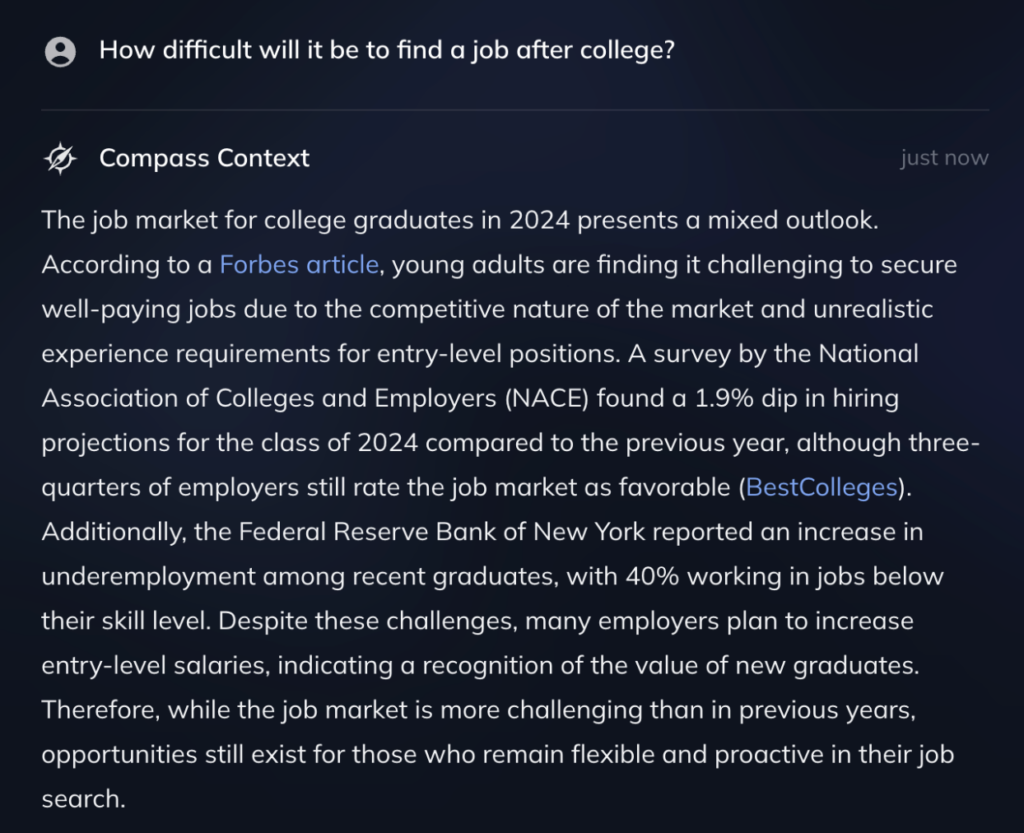
My take: The job market for college graduates presents challenges such as intense competition and unrealistic experience requirements for entry-level roles. However, new opportunities are emerging as technology continues to reshape industries. Therefore, successfully navigating the job search demands flexibility, proactive job-seeking, and persistence. Do internships (like I am at Blackbird.AI) to gain valuable experience before graduating so your skills in the real world can help you find a job when you graduate. Keep an open mind and explore all available opportunities because they may spark new interests and motivation.
Question 9) When will the Computer Science field no longer be oversaturated?
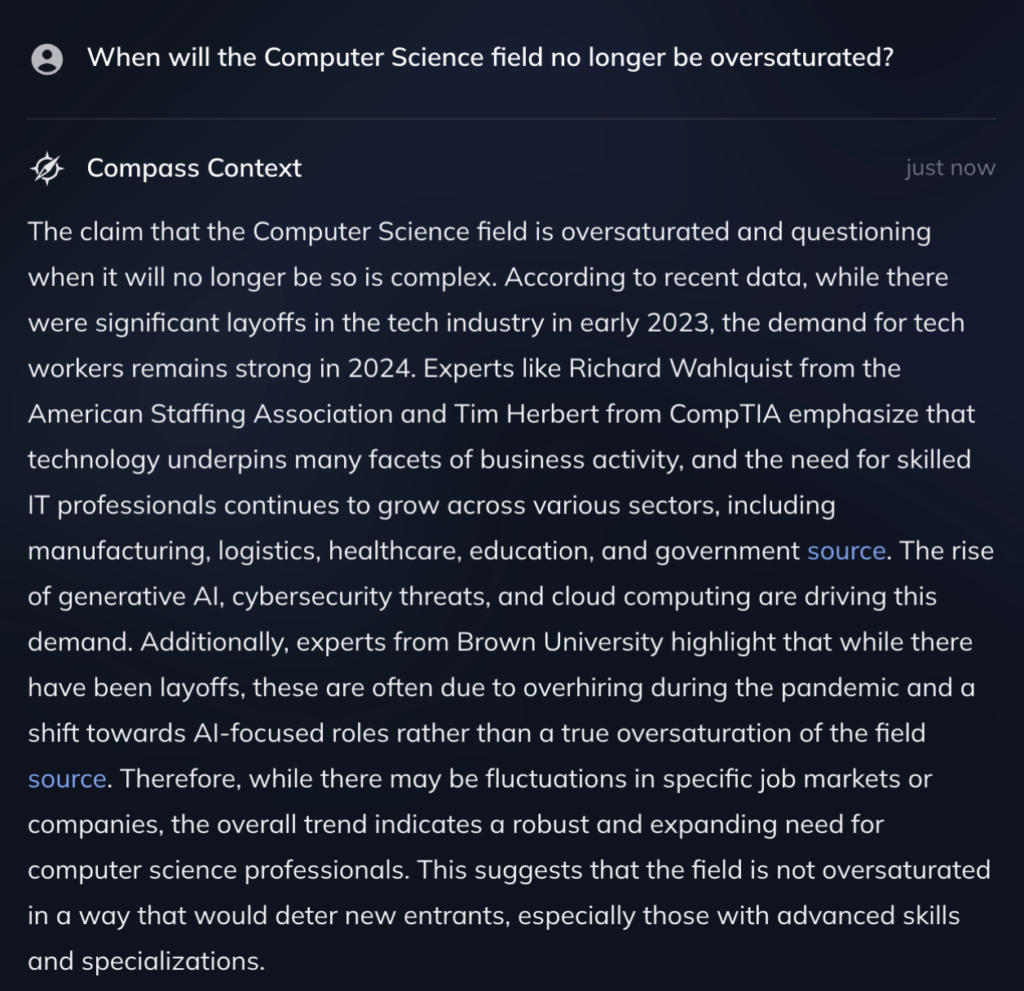
My take: Recent layoffs in the tech industry do not necessarily mean an oversaturation in the Computer Science field. As technology progresses, new roles and jobs will be created that students must fill. The overall trend indicates that the computer science market is expanding and evolving, especially for those with advanced skills and specializations.
Question 10) Is LinkedIn becoming more like Instagram?
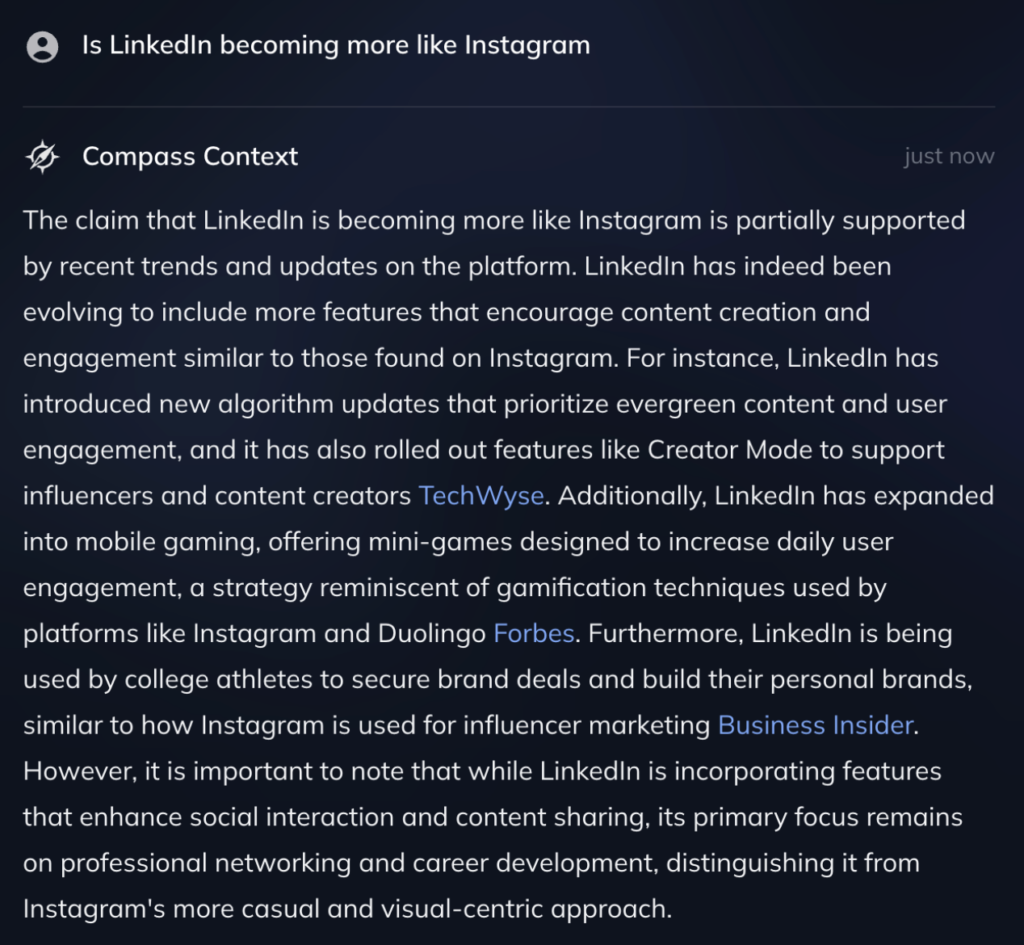
My take: Since entering the professional world, LinkedIn has taken up a noteworthy percentage of my screen time analytics. I use the platform to post new research the company has published, share positive updates about my career, and engage with relevant content. Instagram and LinkedIn encourage me and my friends to showcase ourselves positively and connect with like-minded individuals. It’s interesting to compare the two platforms because, despite their different purposes and missions, the user experience is quite similar.
Question 11) Are college office hours worth going to?
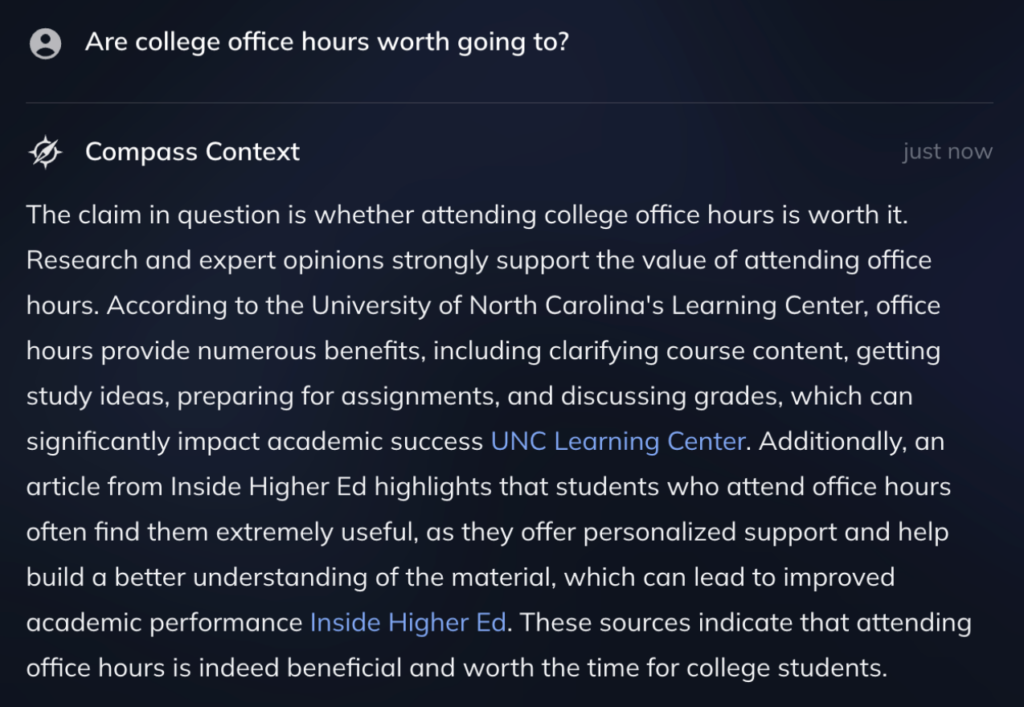
My take: Attending college office hours positively changed my perspective on the college experience. I formed connections with my professors and collaborated with peers who shared similar questions, which improved my communication and problem-solving skills. Office hours are a safe and supportive environment to resolve fundamental concerns and receive extra guidance on class material.
Extra Credit – Travel Abroad
Question 12: Can you travel around Europe for less than $1000?
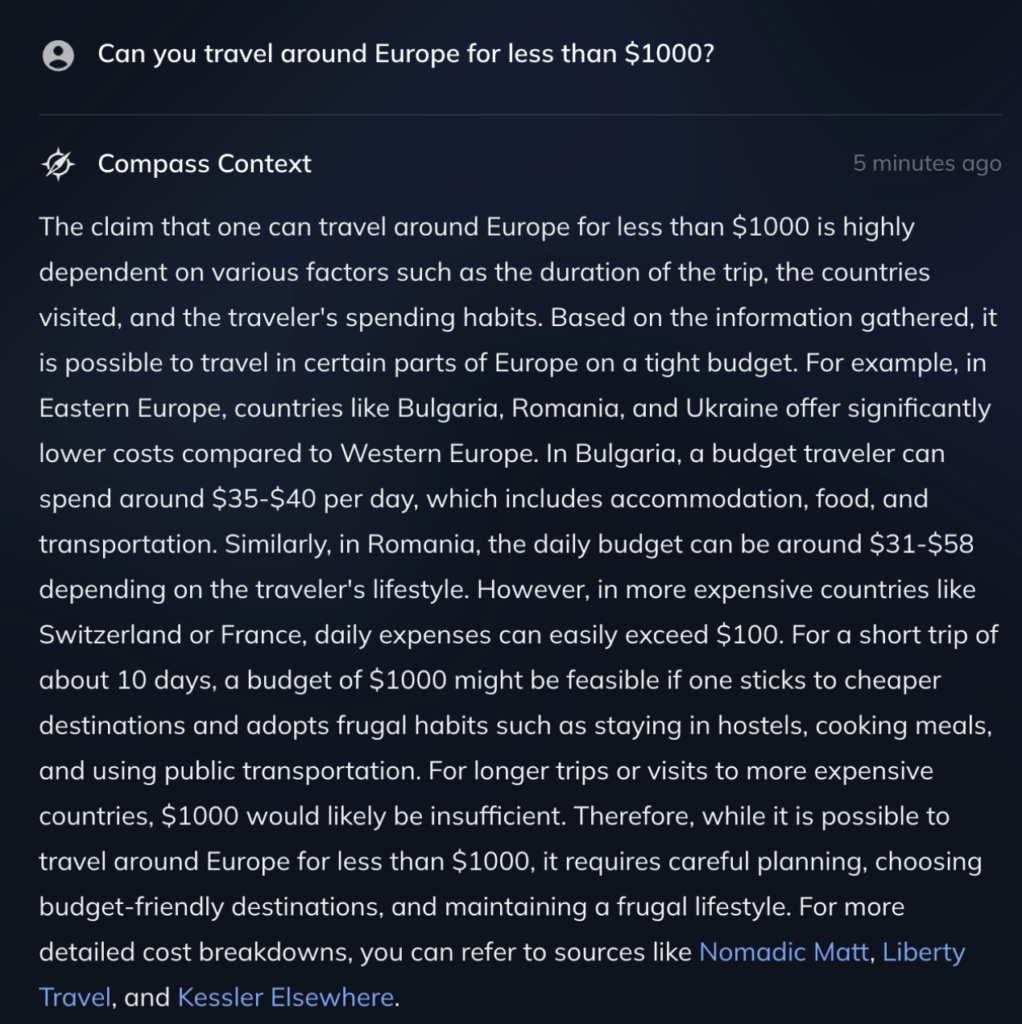
My take: After spending a semester in London, I learned how to find deals and optimize traveling on a budget. While traveling across Europe may seem daunting, many options exist to avoid draining your bank account. A good tip is to use private browsing and reject all cookies before your trip so that websites don’t increase prices when they know you are interested. Traveling is an incredible experience that takes you out of your comfort zone and promotes personal growth and exploration.
In summary, Gen Z faces the challenge of navigating a landscape filled with narrative attacks. Using AI, Compass by Blackbird.AI equips Gen Z with the ability to make informed decisions and engage in critical discourse. With a user-friendly interface and commitment to digital literacy, Compass fights against narrative attacks and empowers the next generation to navigate the digital age confidently.
To learn more about how Blackbird.AI can detect cross-generational narrative attacks, book a demo.
Keira Lowden •
Need help protecting your organization?
Book a demo today to learn more about Blackbird.AI.
